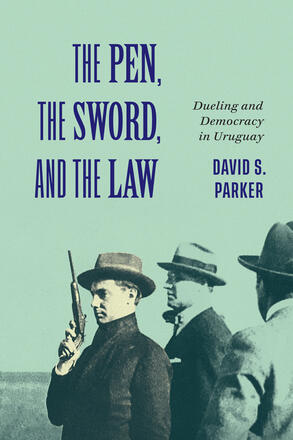
The Pen, the Sword, and the Law
Dueling and Democracy in Uruguay
A vivid exploration of the unique cultural, political, and legal history of duelling in Uruguay.
Description
The duel, and the codes of honour that governed duelling, functioned for decades in many European and Latin American countries as a shadow legal system, regulating in practice what legislators felt free to say and what journalists felt free to write. Yet the duel was also an act of potentially deadly violence and a challenge to the authority of statutory law.
When duelling became widespread in early twentieth-century Uruguay, legislators facing this dilemma chose the unique and radical path of legalization. The Pen, the Sword, and the Law explores how the only country in the world to decriminalize duelling managed the tension between these informal but widely accepted “gentlemanly laws” and its own criminal code. The duel, which remained legal until 1992, was meant to ensure civility in politics and decorum in the press, but it often failed to achieve either. Drawing on rich and detailed newspaper reports of duels and challenges, parliamentary debates, legal records, private papers, and interviews, David Parker examines the role of pistols and sabres in shaping the everyday workings of a raucous public sphere.
Demonstrating that the duel was no simple throwback to archaic conceptions of masculine honour and chivalry, The Pen, the Sword, and the Law illustrates how duelling went hand in hand with democracy and freedom of the press in one of South America’s most progressive nations.
Reviews
“Uruguay is an attractive test case for a public sphere-centered political history. This book offers an engaging and productive way to approach that history from what would appear to be a side angle (the duel) but is in reality its central manifestation (the role of the press in public life).” Pablo Piccato, ReVista: Harvard Review of Latin America